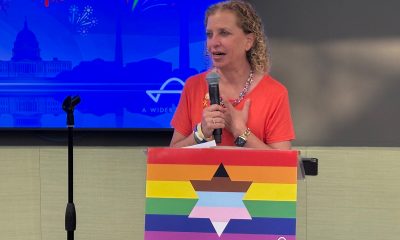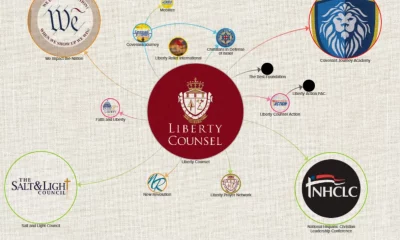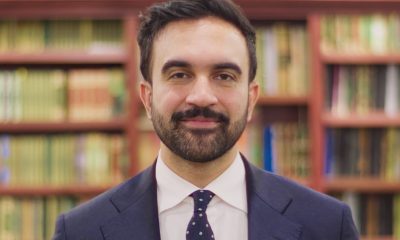Middle East
Israel election results could prove disastrous for LGBTQ community
Former Prime Minister Benjamin Netanyahu poised to return to office
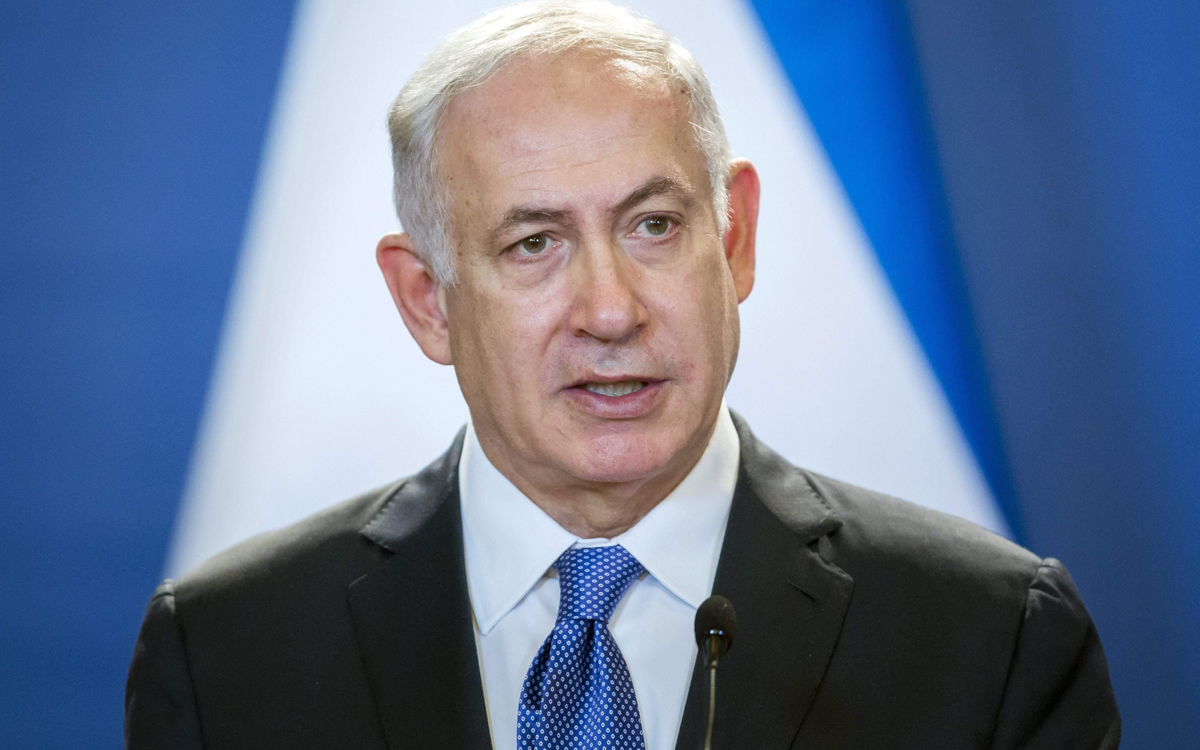
WDG, the Washington Blade’s media partner in Israel, wrote this article.
Around five million Israelis voted in the elections that took place on Tuesday.
After five election campaigns in three and a half years, as of now it seems that the tie between the two (political) blocs has been broken. Benjamin Netanyahu will once again be prime minister and he will be the one to form the next government.
The results that are slowly coming in are extremely worrying for many Israelis, including members of the LGBTQ community.
The far right Hatzionut Hadatit (Religious Zionist Party), which includes Bezalel Smotrich, the organizer of the infamous Cattle Parade, a parade of cattle that marched at the same time as the Jerusalem Pride Parade, did well. Itamar Ben Gvir, who regularly protests against Pride parades and supports so-called conversion therapy, and Avi Maoz, whose anti-LGBTQ agenda is based on preserving family values, are also members of the party.
The Otzma Yehudit party and Hatzionut Hadatit include new, unfamiliar figures who may turn out to be much more extreme than Smotrich and Ben Gvir in regards to their attitudes towards LGBTQ people, women and other minorities.
Does the LGBTQ community have to worry about the election results?
Even before the formation of the government, it is already clear that LGBTQ representation in the Knesset will decrease. After a Knesset with five openly LGBTQ representatives, the next Knesset will have only three LGBTQ members and they will all be men: Amir Ohana from the Likud party and Yorai Lahav and Idan Roll from Yesh Atid.
Another concern for the LGBTQ community is the fear that Meretz, the first party that supported LGBTQ rights and has historically been the political home for the members of the LGBTQ community, will not earn enough seats to get its representatives into the Knesset, which would give the Netanyahu bloc a crushing victory.
The achievements achieved by the LGBTQ community in the previous Knesset may also be in danger.
The LGBTQ community over the past year has managed to achieve a number of significant achievements that include the repeal of the ban on gay men from donating blood, the approval of surrogacy for male couples, reforms of the Committee for Gender Reassignment, the promotion of activities for LGBTQ Arabs and a budget of 90 million NIS ($24,460,991) for local authorities all over the country to carrying out activities for the benefit of the LGBTQ community.
Due to the complexity of the previous government that was made up of different parties from all ends of the political spectrum — from Naftali Bennett on the right to Meretz and Ra’am on the left — all of these achievements did not come through legislation, but through regulations that various ministers implemented. This fact may be to the community’s detriment, because new government ministers could just as easily reverse them.
The far-right’s goal of reforming the justice system could also hurt LGBTQ achievements, some of which resulted from Supreme Court decisions. The legislation of the Override Clause will give the Knesset the authority to re-enact a law that the High Court has invalidated, thereby overruling Supreme Court decisions.
Poll indicates most LGBTQ Israelis fear right-wing government
In a study the Israeli Institute for Gender and LGBTQ Research at the Aguda conducted before the election, 87 percent of LGBTQ Israelis said that they fear the next Knesset will violate their rights. This fear is not only from the lack of promotion of pro-LGBTQ legislation, but also from the promotion of regulations and laws that will actively harm LGBTQ organizations.
If the right-wing government fulfills its promises, it would remove the LGBTQ education organization Hoshen from schools, end financial support for Israel Gay Youth, ban hormone treatments for transgender people and provide financial support for organizations that offer conversion therapy. And as we have learned during all the years of the LGBTQ struggle, when public figures incite against members of the community, this affects the public and the verbal cancellation turns into discrimination of LGBTQ people in businesses, bullying in schools against LGBTQ students and physical assaults in the street.
How LGBTQphobic will the next government be?
The results of the elections in Israel are the will of the Israeli voter. The people of Israel gave a significant power to parties that seek to harm the rights of the LGBTQ community, but these parties were not necessarily elected due to being anti-LGBTQ.
The fact that Ben Gvir and Smotrich and their parties received significant support is not necessarily about LGBTQ issues, but it is mainly based on the state of internal security in Israel. Violence and crime in large areas of the country that have become no man’s land, the internal terrorism that culminated in riots in Arab Jewish cities in May 2021, and the disappointment of many from the right-wing parties that entered the last government together with an Arab party caused many voters, some of them LGBTQ, to vote for extreme right-wing parties.
Another parameter that helped Ben Gvir and Smotrich in the election is the timing.
They entered an election system in which there is no other right-wing party except Likud. All the right-wing leaders (Avigdor Lieberman, Bennett and Gideon Sa’ar) moved towards the center-left and new, more extreme right-wing leaders who previously failed to enter the Knesset filled the vacuum.
The people of Israel are patiently waiting to see what the results will be and how the map of the blocks will look. We still won’t know which government will be formed, even after the final results are announced. Netanyahu will receive the mandate from the president and will begin the task of forming the government, which history has already taught us is impossible to predict how it will end. Israeli politics is unpredictable and full of surprises, and any possibility we didn’t think about can become a reality.
It is likely that in the first phase Netanyahu will choose to form a narrow right-wing government with his natural ultra-orthodox and Religious Zionist partners. In this case, Netanyahu will depend on extremist Zionist elements, such as Smotrich and Ben Gvir, and even Maoz, each of whom has the power to topple the government.
The question is whether those parties will use their power to harm LGBTQ achievements and even enact anti-LGBTQ laws, and if so, how will the more liberal Likud members, LGBTQ members and their supporters, will react to these proposals, and whether both parties will be willing to endanger the right-wing government on this subject?
Later, difficulties at home, including excessive demands of the extreme parties, or international pressure from the outside, may cause Netanyahu to strive to expand the government, and perhaps even to replace the extreme elements with more moderate centrist elements such as Benny Gantz. Such a government would be less anti-LGBTQ, but even here the chance of promoting LGBTQ issues is almost non existent, and it is likely that there will be no progress with what will remain. No anti-LGBTQ laws will be promoted either.
Two points to consider
The first one is how the new Knesset members who proudly declared themselves to be LGBTQphobic will sit in a coalition and cooperated with Ohana, a gay MP and a father for two children who he had via surrogate.
The second one is how will Netanyahu and the secular Likud members deal with the extreme demands of the religious parties, which range from the closing of places of entertainment on Shabbat, the termination of women’s service in the IDF, and the application of Torah laws to the judicial system.
“Just as the outgoing government protected the rights of all citizens of the country, the incoming government is also expected to do the same.,” outgoing Health Minister Nitzan Horowitz, a member of the LGBTQ community who will not enter the next Knesset, said. “If Smotrich or Ben Gvir think they will harm women’s rights, LGBTQ or Arabs, a large and strong front will stand in front of them and will prevent this from them.”
Will the opposition to this new government will be strong and determine enough to stop these scenarios from happening?
Only time will tell.
Iran
LGBTQ Iranians join anti-government protests
Nationwide demonstrations over economy began Dec. 28

Protests erupted across Iran on Dec. 28 as public anger over the country’s collapsing country spilled into the streets. Members of the LGBTQ community are among those who have participated in them.
What began as demonstrations over rising living costs soon expanded into broader political dissent, with protesters chanting anti-government slogans and, in some cases, directly criticizing Supreme Leader Ayatollah Ali Khamenei. Authorities later imposed internet restrictions and launched a nationwide crackdown, according to human rights groups.
According to Reuters, an Iranian official said authorities have verified at least 5,000 deaths linked to the unrest, including about 500 members of the security forces. The official blamed what the government described as “terrorists and armed rioters” for the killings, a characterization that could not be independently verified due to severe restrictions on media access and internet connectivity.
The same official told Reuters that the final death toll was not expected to rise significantly. The official also alleged that Israel and armed groups outside Iran had supported and supplied those involved in the protests, claims that could not be independently verified.
Multiple sources told the Washington Blade that LGBTQ Iranians have taken part in the protests against the government, despite the heightened risks they face under the country’s strict laws that criminalize consensual same-sex sexual relations.
Arsham Parsi, founder and executive director of International Railroad for Queer Refugees, is from Shiraz, a city in southern Iran. He fled the country in 2005.
Parsi told the Blade a widespread demand for dignity and freedom is driving the uprising.
“It is important to say clearly: LGBTQ people are part of Iranian society, and they are part of this protest,” said Parsi. “Many are participating directly, despite facing risks that are often even greater than others — because in Iran they are already criminalized and targeted simply for who they are.”
“For LGBTQ Iranians, showing up — whether publicly or in underground ways — can carry life-and-death consequences,” he added.
Parsi told the Blade that members of the LGBTQ community with whom he has been in contact described a mix of fear, exhaustion, grief, and determination. He added that many of them feel this moment differs from previous waves of protest in Iran.
“The scope, the persistence, and the public rejection of fear feel qualitatively different — and for that reason, many Iranians inside and outside the country are hopeful that this will lead to real transformation, including regime change, and that Iranians will finally regain their freedom,” said Parsi. “Freedom is not free, and Iranians are paying its cost with their blood.”
Parsi said the government’s response to the protests has been severe; citing widespread blackouts, internet shutdowns, telephone disruptions, and heavy security presence on the streets. He said the communication restrictions have made it increasingly difficult to document abuses, locate missing people, coordinate medical assistance or verify information, warning that such conditions can allow violence to occur beyond public view.
Parsi said his organization, along with other trusted groups, has been sharing harm-reduction guidance whenever possible, particularly on digital safety, avoiding identification and minimizing risk. He added, however, there is no fully safe way to protest under a system that criminalizes identity and treats dissent as an enemy, noting LGBTQ people, women, students, labor activists, and ethnic and religious minorities are among those facing the greatest danger.
“I also want to be very clear about what kind of international involvement we are calling for. We are against foreign military intervention. Iranians must determine Iran’s future. But we do need international aid and serious diplomatic engagement that is grounded in human rights — not convenience,” said Parsi. “In the past, too often, when Iranians rose up, parts of the international community were distracted by negotiations, ‘promises’ from the Islamic Republic, or short-term deals, and the momentum for human rights was abandoned.”
“We hope this time no one is fooled,” he added. “The regime is desperately trying to manipulate the narrative through state media and misinformation — to change the course of events and confuse the international community. The world must be smart, vigilant, and principled: do not reward repression with legitimacy, and do not trade away Iranian rights for empty assurances.”
Parsi said the unrest should also be viewed within a broader regional context, noting Iran’s actions beyond its borders have long drawn criticism from governments and analysts who accuse the country of supporting armed groups and contributing to conflicts that have harmed civilians across the Middle East. He said a future Iran that respects human rights domestically and pursues less confrontational policies abroad could have implications not only for Iranians, but for regional and global stability as well, adding many within the country continue to protest despite the personal risks involved.
Soudeh Rad, co-founder and executive director of Spectrum, a France-based NGO that works with Farsi-speaking communities on gender equality and LGBTQ issues, noted to the Blade the latest wave of large-scale protests began in Tehran’s Grand Bazaar. They said LGBTQ people, like other marginalized and underrepresented communities, often suffer disproportionate burden under systems of entrenched discrimination.
“Images and testimonials prove the fact that protestors are from all classes, ages, communities, ethnicities, genders, and even with different abilities. This is not a higher-class protest. Obviously, our LGBTQIA+ siblings, of all political tendencies and belongings,” said Rad. “As we can imagine, if their SOGIESC (sexual orientation, gender identity, gender expression, and sex characteristics) identity is revealed at the detention centers and prisons, they will be subject to a higher and more intense torture. Police and militia have not hesitated a moment to shoot protestors to kill them. Snipers have been spotted targeting people. Reported numbers of killed and injured people go as high as thousands.”
Rad said recent protest movements have produced gradual social changes in Iran even without formal legal reforms. They cited the “Women, Life, Freedom” movement, noting observers report growing noncompliance with compulsory hijab rules and increased solidarity among ethnic and long-marginalized communities that include Baluchis, Kurds, and Azeris. Rad described the current unrest as part of an ongoing process of social transformation.
Shadi Amin, a director at the LGBTQ rights group 6Rang, said the full impact of the crackdown on LGBTQ activists remains unknown, citing internet shutdowns and limited access to detention centers that have hindered documentation. She said LGBTQ people often face additional barriers to recognition as victims of human rights abuses, because discussions of sexual orientation and gender identity are frequently sidelined during periods of unrest. This omission leaves many cases unacknowledged or erased from public narratives.
Amin also pointed to Iran’s legal framework, under which consensual same-sex sexual relations remain punishable by death, as a key factor contributing to the long-standing invisibility of LGBTQ people.
She said the absence of official data makes it impossible to determine how many LGBTQ individuals may have been killed, detained or subjected to abuse during the protests, adding that this lack of recognition has persisted for decades. Amin told the Blade the internet shutdown has also severed regular communication between advocacy groups and LGBTQ people inside Iran, cutting off counseling services and daily contact that had previously provided limited insight into conditions on the ground. She said the loss of communication has made it increasingly difficult to assess the safety of individuals or confirm who remains in detention or has gone missing.
“I have spent almost my entire life fighting for freedom and democracy. Even if we have not yet achieved our ultimate goal, we have made life harder for our oppressors and safer for our community—and that in itself matters,” Amin noted to the Blade. “We seek change and have called for international intervention to uphold the responsibility to stop crimes against humanity, including through Responsibility to Protect (a U.N. principle adopted in 2005); however, top-down regime change or foreign military intervention would silence the movement.”
“In times of war, weapons — not people — have the final word, and social movements are pushed aside. This is one of our core concerns,” she added. “Another is the risk that even if the current regime is overthrown, it could be replaced by another form of dictatorship — such as a monarchic project represented by the son of the former shah, who has lived in the United States for nearly five decades and lacks democratic legitimacy.”
Amin said LGBTQ activists fear being overlooked amid the broader unrest, emphasizing concerns that ongoing repression and communication blackouts risk pushing LGBTQ experiences further out of public view. She said maintaining international attention remains critical for communities that are often forced into invisibility during periods of crisis.
Matt Forouzandy, president of the 30-Morg Queer Liberation Committee, an NGO focused on LGBTQ issues affecting Iranians inside the country and in the diaspora, confirmed LGBTQ Iranians have participated in the protests since they began.
He said some queer Iranians publicly expressed support for Crown Prince Reza Pahlavi on social media, sharing posts alongside Iran’s lion and sun flag, while acknowledging the risks they faced before joining demonstrations.
Pahlavi is the son of Iran’s last monarch, Mohammad Reza Shah Pahlavi, who was overthrown during the 1979 Islamic Revolution. Living in exile, he has in recent years emerged as a symbolic opposition figure for some Iranians abroad, though his role and influence inside the country remain contested.
Forouzandy said LGBTQ people inside Iran have, in some cases, participated more openly in the protests than many observers might expect, citing years of compounded repression under the regime. He said many queer activists use their real names and photographs on X and other social media platforms, rather than operating anonymously. Forouzandy added LGBTQ participants across different regions of the country have publicly expressed opposition to the current system.
Forouzandy said the future legal and civil status of LGBTQ people in Iran would depend on the political direction taken if the current system were to change, including whether outcomes reflect domestic demands or outside influence. He said some protesters have expressed support for a return to monarchical rule, arguing that such a shift could affect prospects for civil rights, though the outcome remains uncertain.
“Iranians in the diaspora — including LGBTQ+ individuals — are doing everything within their capacity to support those inside the country,” said Forouzandy. “However, the most decisive force remains the people inside Iran themselves. Their courage, determination, and collective will are what ultimately shape the outcome.”
“This is especially true for LGBTQ+ Iranians, who are fighting simultaneously for the liberation of their homeland and for full and equal civil rights within a future free Iran,” he added.
Iran
Grenell: ‘Real hope’ for gay rights in Iran as result of nationwide protests
Former ambassador to Germany claimed he has sneaked ‘gays and lesbians out of’ country

Richard Grenell, the presidential envoy for special missions of the United States, said on X on Tuesday that he has helped “sneak gays and lesbians out of Iran” and is seeing a change in attitudes in the country.
The post, which now has more than 25,000 likes since its uploading, claims that attitudes toward gays and lesbians are shifting amid massive economic protests across the country.
“For the first time EVER, someone has said ‘I want to wait just a bit,” the former U.S. ambassador to Germany wrote. “There is real hope coming from the inside. I don’t think you can stop this now.”
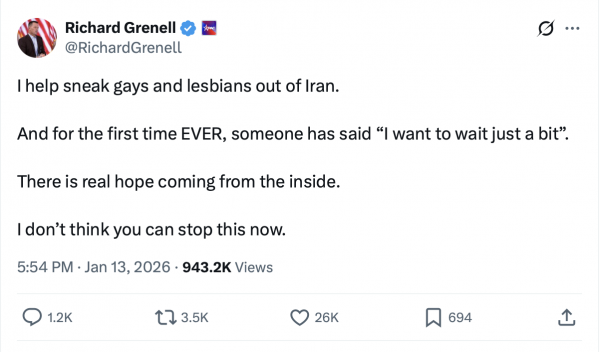
Grenell has been a longtime supporter of the president.
“Richard Grenell is a fabulous person, A STAR,” Trump posted on Truth Social days before his official appointment to the ambassador role. “He will be someplace, high up! DJT”
Iran, which is experiencing demonstrations across all 31 provinces of the country — including in Tehran, the capital — started as a result of a financial crisis causing the collapse of its national currency. Time magazine credits this uprising after the U.N. re-imposed sanctions in September over the country’s pursuit of nuclear weapons.
As basic necessities like bread, rice, meat, and medical supplies become increasingly unaffordable to the majority of the more than 90 million people living there, citizens took to the streets to push back against Iran’s theocratic regime.
Grenell, who was made president and executive director of the John F. Kennedy Center for the Performing Arts last year by Trump, believes that people in the majority Shiite Muslim country are also beginning to protest human rights abuses.
Iran is among only a handful of countries in which consensual same-sex sexual relations remain punishable by death, according to the Death Penalty Information Center.
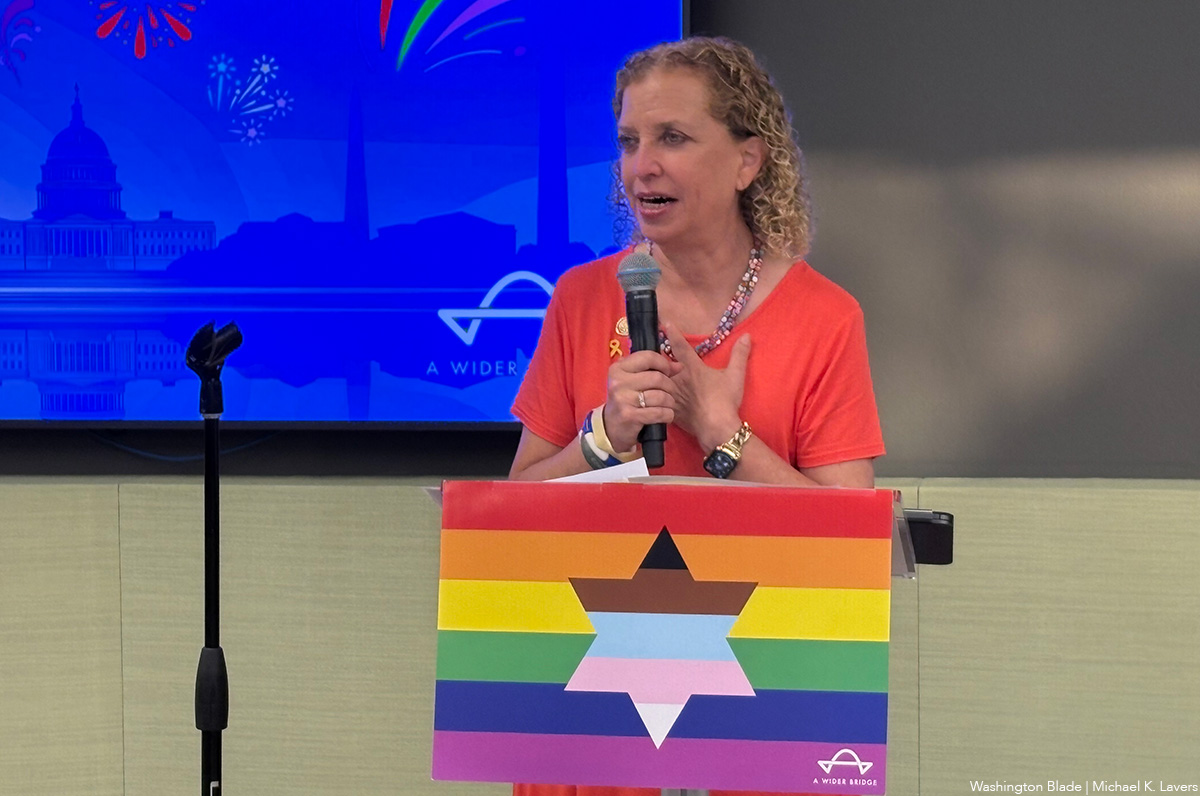
A Wider Bridge on Friday announced it will shut down at the end of the month.
The group that “mobilizes the LGBTQ community to fight antisemitism and support Israel and its LGBTQ community” in a letter to supporters said financial challenges prompted the decision.
“After 15 years of building bridges between LGBTQ communities in North America and Israel, A Wider Bridge has made the difficult decision to wind down operations as of Dec. 31, 2025,” it reads.
“This decision comes after challenging financial realities despite our best efforts to secure sustainable funding. We deeply appreciate our supporters and partners who made this work possible.”
Arthur Slepian founded A Wider Bridge in 2010.
The organization in 2016 organized a reception at the National LGBTQ Task Force’s Creating Change Conference in Chicago that was to have featured to Israeli activists. More than 200 people who protested against A Wider Bridge forced the event’s cancellation.
A Wider Bridge in 2024 urged the Capital Pride Alliance and other Pride organizers to ensure Jewish people can safely participate in their events in response to an increase in antisemitic attacks after Hamas militants attacked Israel on Oct. 7, 2023.
The Jewish Telegraphic Agency reported authorities in Vermont late last year charged Ethan Felson, who was A Wider Bridge’s then-executive director, with lewd and lascivious conduct after alleged sexual misconduct against a museum employee. Rabbi Denise Eger succeeded Felson as A Wider Bridge’s interim executive director.
A Wider Bridge in June honored U.S. Rep. Debbie Wasserman Schultz (D-Fla.) at its Pride event that took place at the Capital Jewish Museum in D.C. The event took place 15 days after a gunman killed two Israeli Embassy employees — Yaron Lischinsky and Sarah Milgrim — as they were leaving an event at the museum.
“Though we are winding down, this is not a time to back down. We recognize the deep importance of our mission and work amid attacks on Jewish people and LGBTQ people – and LGBTQ Jews at the intersection,” said A Wider Bridge in its letter. “Our board members remain committed to showing up in their individual capacities to represent queer Jews across diverse spaces — and we know our partners and supporters will continue to do the same.”
Editor’s note: Washington Blade International News Editor Michael K. Lavers traveled to Israel and Palestine with A Wider Bridge in 2016.

